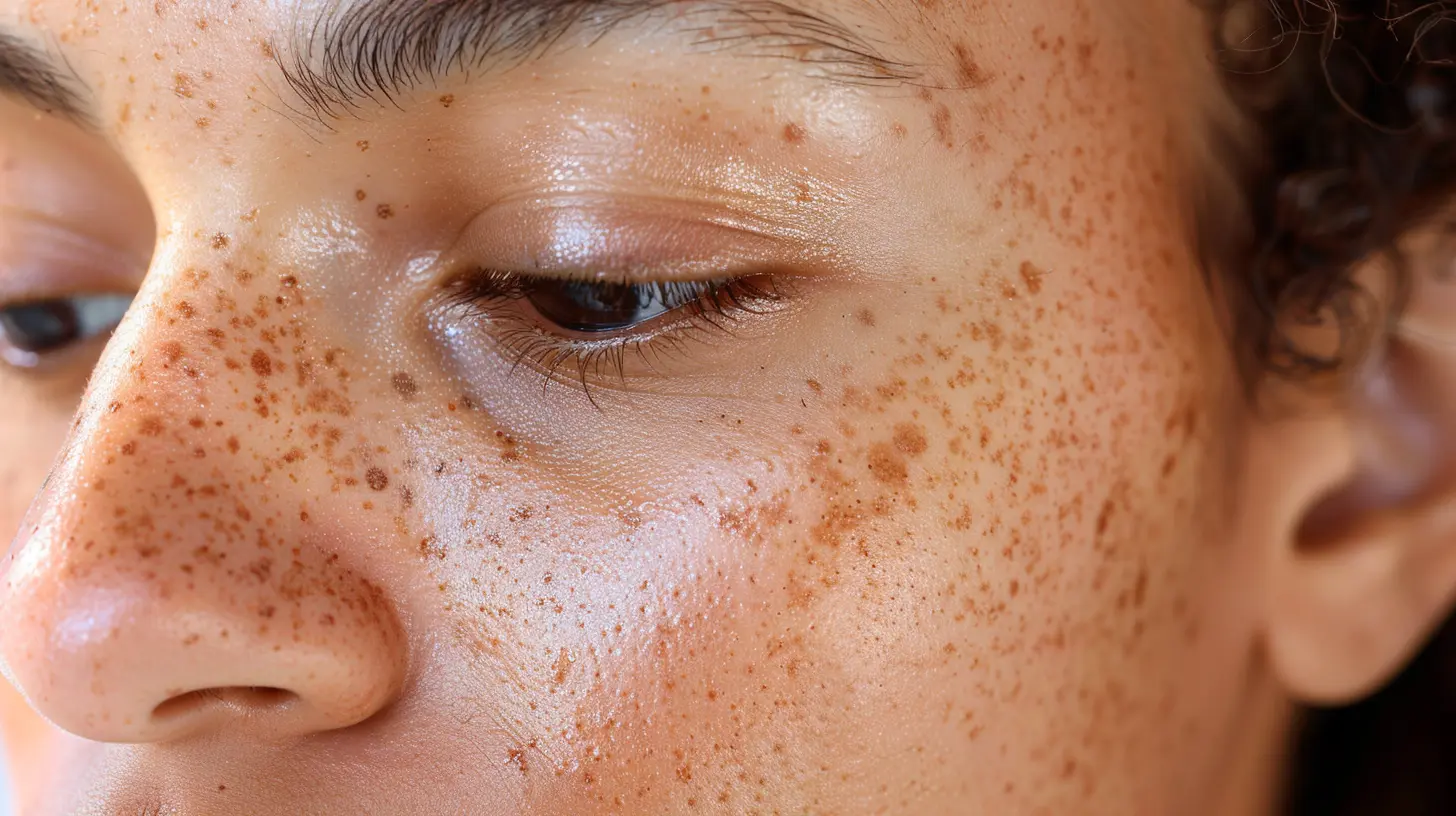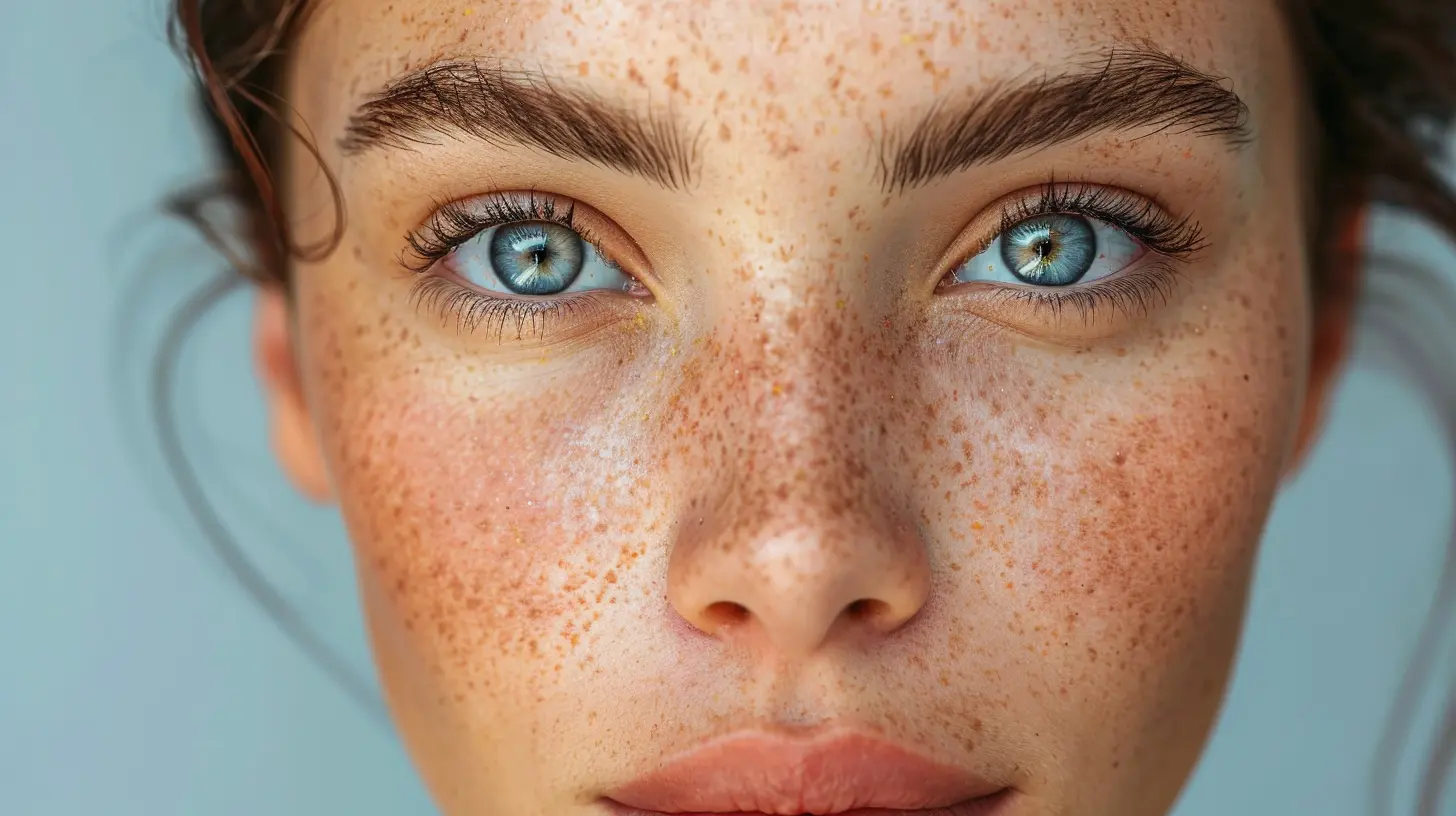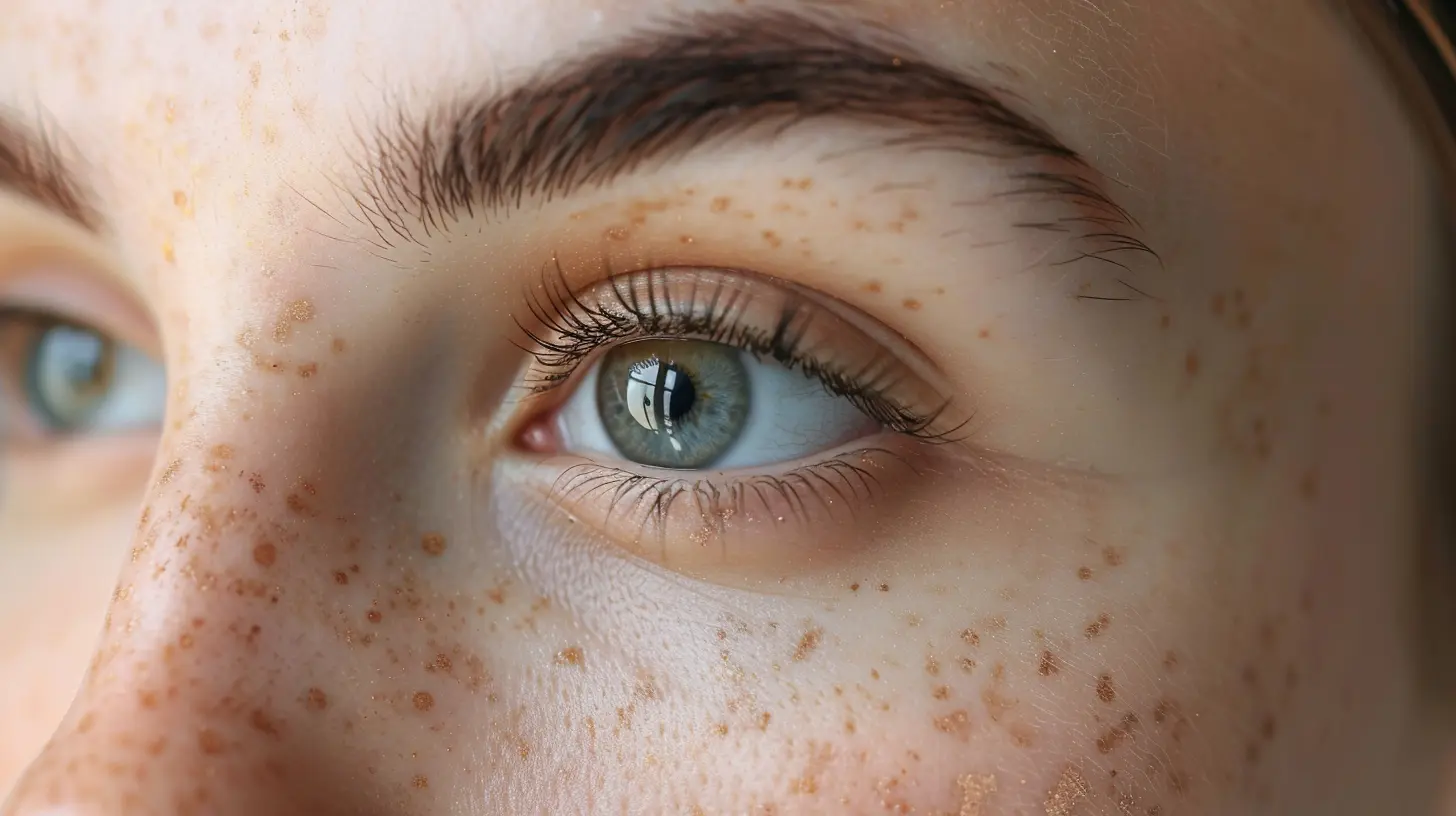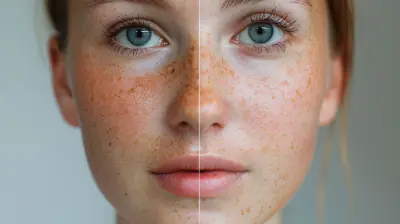Understanding Hyperpigmentation and How to Treat It
31 December 2024
Do you notice stubborn dark spots on your skin that just won’t leave, no matter how much you pamper your face? You're not alone—this common skin condition has a name: hyperpigmentation. While it may sound like a scary medical term, hyperpigmentation is completely normal and treatable. So, let’s dive in, uncover what hyperpigmentation really is (without the complicated jargon), why it happens, and most importantly, how you can treat it effectively.
Whether you're dealing with those annoying sun spots, post-acne scars, or just an uneven skin tone that makes you cringe at the mirror, this guide is here to help. Think of it as a roadmap to clearer, more radiant skin. Ready? Let’s get started! 
What is Hyperpigmentation?
Hyperpigmentation is just a fancy way of saying "your skin found a way to overproduce melanin in certain areas." Melanin is the pigment that gives your skin, hair, and eyes their color. When the production of melanin goes off the rails, it can lead to patches or spots on your skin that are darker than your usual skin tone.The result? Uneven skin tone that can often make your complexion look patchy or dull. But here’s the thing—it’s not dangerous. Hyperpigmentation itself isn’t harmful, but it can definitely shake your confidence.
Hyperpigmentation can be temporary or long-lasting. Some marks fade over time, while others decide to set up permanent residence on your face or body. 
Types of Hyperpigmentation
Understanding what type of hyperpigmentation you’re dealing with is the first step to treating it. Let’s break it down, shall we?1. Post-Inflammatory Hyperpigmentation (PIH)
Ever noticed those dark spots left behind after a pimple vanishes? That’s PIH! Think of it as your skin’s way of keeping a little "souvenir" from inflammation caused by acne, bug bites, or even eczema.2. Melasma
Melasma is like the diva of hyperpigmentation—it loves to show up on your face (especially your cheeks, forehead, and upper lip). Hormonal changes, like pregnancy or birth control pills, are often responsible for this. In fact, melasma is sometimes lovingly referred to as the "mask of pregnancy."3. Sunspots (Solar Lentigines)
Ever heard the phrase, "The sun never forgets"? That’s exactly how sunspots form. These are dark patches caused by excessive exposure to the sun over time, and they typically show up on areas like your face, hands, and arms—places where the sun hits hardest.
What Causes Hyperpigmentation?
Now that we know the "what," let’s tackle the "why."Hyperpigmentation has a mix of culprits. Sometimes it’s your lifestyle, other times it’s just plain genetics. Here are some common triggers:
- Sun Exposure: Remember how your mom always told you to wear sunscreen? She wasn’t kidding. UV rays are one of the biggest contributors to hyperpigmentation. The more unprotected exposure you have, the worse it gets.
- Hormonal Changes: Pregnancy, menopause, or hormonal medications can wreak havoc on your melanin production, leading to dark spots.
- Skin Inflammation: Got acne, eczema, or an injury? Your skin might respond by producing more melanin, leaving behind those pesky dark spots.
- Certain Medications: Believe it or not, some medications (like antibiotics or chemotherapy drugs) can cause hyperpigmentation as a side effect.
- Aging: Like it or not, the older we get, the more likely we are to develop hyperpigmentation as a natural part of the aging process. 
How to Treat Hyperpigmentation
Alright, now for the stuff you really came here for—how to kick hyperpigmentation to the curb. There are plenty of effective treatments out there, from DIY remedies to professional dermatological treatments. Let’s explore your options:1. Sunscreen: Your New Best Friend
If you take away one thing from this article, let it be this: sunscreen is non-negotiable. Hyperpigmentation thrives on sunlight, so protecting your skin with a broad-spectrum SPF 30 (or higher) is the single most important step you can take. And don’t forget to reapply every two hours if you’re outdoors.2. Topical Treatments
Sometimes, your skin just needs a little helping hand. Look for over-the-counter (OTC) products or prescriptions that contain these powerhouse ingredients:- Vitamin C: Think of this as your skin’s brightening agent. It fights dark spots and leaves you glowing.
- Retinoids: Great for cell turnover and fading marks over time.
- Niacinamide: A soothing ingredient that helps even out your skin tone.
- Hydroquinone: A highly effective lightening agent (but use sparingly and only under a dermatologist’s guidance).
3. Chemical Peels
Imagine giving your skin a fresh start. A chemical peel exfoliates the top layer of your skin, revealing a brighter complexion underneath. Glycolic acid, lactic acid, and salicylic acid are common peeling agents that work wonders for hyperpigmentation.4. Laser Treatments
For those stubborn dark spots that laugh in the face of creams and serums, laser treatments can be a game-changer. These high-tech treatments target melanin-rich areas, breaking down the pigment for a more even skin tone.5. Natural Remedies (With a Word of Caution)
If you prefer a more natural route, you can try ingredients like:- Aloe Vera: Known for its anti-inflammatory properties.
- Turmeric: Contains curcumin, which can reduce hyperpigmentation.
- Licorice Extract: Works as a natural lightening agent.
But here’s the deal with DIY remedies—they’re not always backed by science, and results can vary. Test on a small area first, and don’t expect overnight miracles.
Preventing Hyperpigmentation
Wouldn’t it be great to stop hyperpigmentation before it even starts? Here’s how:- Wear Sunscreen Religiously: Yes, I’m saying it again because it’s that important.
- Avoid Picking at Your Skin: Easier said than done, but picking at pimples or scabs can lead to scars and dark spots.
- Use Gentle Skincare Products: Harsh scrubs and irritating ingredients can worsen inflammation. Stick to products that are kind to your skin.
- Stay Consistent with Your Routine: Whether you’re using topical treatments or professional care, consistency is key.
When to See a Dermatologist
If you’ve tried all the tips above and your stubborn spots still won’t budge, it’s time to bring in the pros. A dermatologist can offer advanced treatments like prescription-strength creams, chemical peels, or even customized laser therapies tailored to your skin’s needs.Don’t hesitate to seek professional advice, especially if your hyperpigmentation is affecting your self-esteem. A personalized plan can make all the difference.
Final Thoughts
Hyperpigmentation isn’t something you have to live with forever. With the right combination of sunscreen, topical treatments, and professional care, you’ll be well on your way to brighter, more even-toned skin.Remember, treating hyperpigmentation takes time and patience—it’s not a "quick-fix" kind of deal. But stick with it, and you’ll see results. Think of it as a marathon, not a sprint.
Got any tips or products that worked for you? Share them in the comments—I’d love to hear from you!
all images in this post were generated using AI tools
Category:
Skin CareAuthor:

Madeline Howard
Discussion
rate this article
10 comments
Anna Bowers
Hyperpigmentation reflects deeper skin health issues and can be influenced by various factors. Effective treatment combines preventive measures, topical solutions, and professional guidance for lasting results.
March 31, 2025 at 2:59 AM

Madeline Howard
Thank you for your insightful comment! You're absolutely right—addressing hyperpigmentation requires a holistic approach that includes prevention, treatment, and professional support.
Grace Carter
This article offers a fascinating glimpse into hyperpigmentation! I'm curious about the various treatments available—do some work better for certain skin types? Additionally, how do lifestyle factors influence the effectiveness of these treatments? Excited to learn more about managing this condition!
February 3, 2025 at 3:38 AM

Madeline Howard
Thank you for your interest! Yes, treatments can vary in effectiveness depending on skin type, and lifestyle factors like sun exposure and diet also play a significant role in treatment success. I’ll cover these aspects in more detail in future articles!
Calyx Robinson
Stop stressing, start treating—your glow-up awaits!
January 27, 2025 at 4:41 AM

Madeline Howard
Thank you! Embracing a proactive approach can make all the difference in achieving healthy, radiant skin.
Luma Vasquez
Thank you for this insightful article on hyperpigmentation! It’s so helpful to learn about the causes and treatment options. I appreciate the clear explanations and practical tips, making it easier for those of us affected to understand and address this skin concern.
January 21, 2025 at 4:40 AM

Madeline Howard
Thank you for your kind words! I'm glad you found the article helpful and informative.
Quincy McTier
Hyperpigmentation, while often harmless, can impact self-esteem. Understanding its causes—such as sun exposure, hormonal changes, and inflammation—is crucial for effective treatment. Options like topical retinoids, vitamin C, and laser therapies can help, but it's essential to consult a dermatologist for personalized advice and management.
January 12, 2025 at 4:20 PM

Madeline Howard
Thank you for highlighting the importance of understanding hyperpigmentation and its treatment options! Consulting a dermatologist is indeed key for personalized care.
Gwen Clayton
Hyperpigmentation, often a result of sun exposure and hormonal changes, reflects underlying skin health. Effective treatments like topical retinoids and antioxidants can help, but prevention through sun protection is crucial. Understanding your skin's needs is key for achieving a radiant, even complexion.
January 8, 2025 at 4:43 AM

Madeline Howard
Thank you for your insightful comment! Understanding the causes of hyperpigmentation and prioritizing sun protection are indeed essential for maintaining skin health and achieving an even complexion.
Zeke McCabe
Thank you for this informative article! Understanding hyperpigmentation and its treatments can greatly empower individuals seeking effective skincare solutions.
January 3, 2025 at 5:46 AM

Madeline Howard
Thank you for your kind words! I'm glad you found the article helpful in understanding hyperpigmentation and its treatments.
Cora McClintock
Thank you for this insightful article on hyperpigmentation. Your clear explanations and practical treatment options are incredibly helpful. It's great to see such valuable information shared, as it empowers readers to better understand and manage their skin health effectively.
January 2, 2025 at 3:56 PM

Madeline Howard
Thank you for your kind words! I'm glad you found the article helpful in understanding and managing hyperpigmentation.
Nancy McConkey
Great insights on hyperpigmentation! Understanding causes and treatments really helps in managing skin concerns effectively.
December 31, 2024 at 4:22 PM

Madeline Howard
Thank you for your feedback! I'm glad you found the insights helpful in managing hyperpigmentation.
Laila Nguyen
Illuminate your skin; embrace healing's gentle touch.
December 31, 2024 at 6:08 AM

Madeline Howard
Thank you! Embracing healing is key to achieving radiant skin while addressing hyperpigmentation.
MORE POSTS

Smoothies for Clear Skin: Recipes to Achieve a Natural Glow

How Consistent Cardio Can Support a Healthy Lifestyle

The Role of Mindfulness in Managing Chronic Pain

How to Reduce Pores and Achieve a Smooth Complexion

Cardio Routines You Can Do Without a Gym

From Desk to Dumbbells: Workouts for Office Workers

How Much Weight Should You Expect to Gain During Pregnancy?